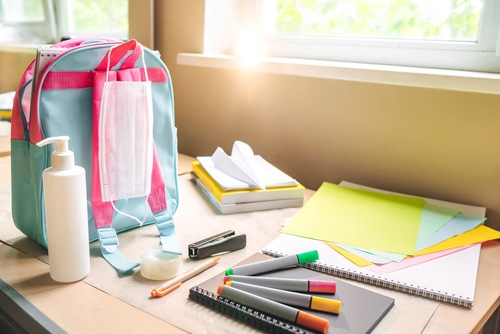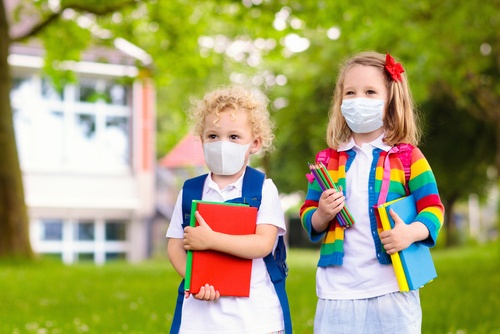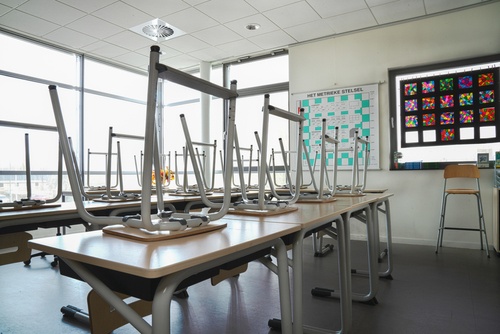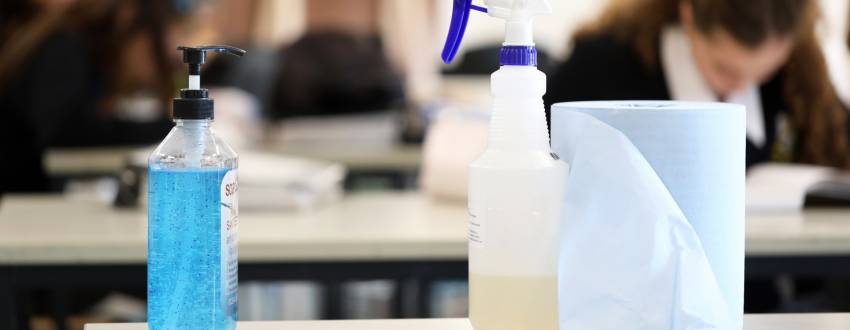Children are returning to yeshivas, Bais Yaakovs, and day schools, leaving behind very nervous parents. Almost all yeshivas sent out notices reassuring parents covering such questions as: will my child require COVID testing prior to being allowed to attend school? What about the 14-day quarantine if someone in the family tests positive? Will all New York State (or other state) guidelines, such as social distancing and mask wearing, be followed? What happens if someone in the class or school contracts COVID?
What parents most want to hear is that their child’s school is committed to the children’s safety. By and large the answer is a resounding yes. Most yeshivas have already integrated a rigorous cleaning process by buying the necessary supplies and having the proper personnel. After the long shutdown, everyone (parents, teachers, and administrators) seem to feel strongly about opening the school buildings safely. Many will follow sanitizing and cleaning protocols every night.
Even public schools are pushing for in-class sessions, although they are willing to accommodate families that are simply not yet ready to send their children into a crowded building. New York City is making provisions for those parents to continue their children’s education remotely. NYC is opening public schools with restrictions on how many students can be in the classroom at a time, and alternating in-person with remote learning.

Most yeshivas are not requiring COVID or antibody testing unless a student exhibits symptoms. Should someone have symptoms, they will not be allowed into the school building even if they test positive for antibodies. Quarantine will be enforced. Social distancing will be observed and masks required. If someone contracts COVID, most schools say they will immediately shut down the school for a few days.
In a random survey of various yeshivas and Bais Yaakovs, most were committed to observing the guidelines. Even those that felt COVID is by-and-large over agreed that their parent body is extremely apprehensive and that the pandemic may be lingering, albeit not as severe as in March and April. Israel believed that it was over, until the schools opened. It ignited a fire anew and the country is now in the throes of an epidemic with more than 900 daily cases.
But for the schools, reopening first and foremost meant reassuring a skeptical parent body. As early as August 11, the Yeshivah of Greater Monsey (“the Cheder”) wrote to parents: “In order to keep our students safe and to comply with Health Department guidelines, we will be instituting the following…” It went on to list some of the guidelines, including masks for all students and faculty, a daily health report filled out by parents, and the requirement for quarantining if someone comes in contact with an infected individual.
Yeshiva Torah Temima reassured its parent body about their cleaning and sanitizing process, including that “the entire campus has been deep cleaned.” This was explained as using “hospital grade cleaners as recommended by the CDC for daily cleansing in all areas.” They also informed parents that they were hiring additional custodial staff, installing HEPA-grade air filters in their HVAC, and opening more entrances to the schools. The protocol in the yeshiva includes daily temperature checks, social distancing, masks, and some of the other measures that all schools are adopting.

G.L from New Jersey is choosing to send her kids to school this year. She says, “I am mostly confident that it will be safe, and hopeful that my kids’ school will be fully responsible and careful- I appreciate that they are trying their best. I hope that everyone stays safe and that schools will remain open the whole year.”
Not all parents are convinced. M.R. in Monsey, says, “With mixed emotions and a lot of consideration we made the choice to homeschool all our children for the year.” There appear to be others making the same decision as families consider all the unique factors of their situations.
The real question is if schools will be ready to open in the coming days. In New York City there are calls for a further delay in opening schools amid mounting pressure from union leaders, school staff, and families who doubt schools can safely reopen by September 10. New York school districts require a state waiver to offer fewer than 180 days of instruction. If schools don’t meet that requirement, they risk losing funding.
According to new numbers released this week by the Department of Education, about 30% of families—304,880 students—have now opted for remote learning, and principals say that total is increasing every day. They expect the remaining 70%—just under 697,008—will participate in the hybrid model of in-person learning from one to three days a week and remote learning the other days. The number of homeschooled children in the state is expected to quadruple.

Governor Mario Cuomo of New York stated if the schools and districts could not make parents comfortable with sending their children back to school, the parents simply would not send them back, as parents such as M.R. are doing. The governor emphasized that the decision about whether a child returns to school is still up to the parents. He also said that he would not force teachers to return if they felt unsafe.
K.M., a mother of two in New Jersey, whose children will be attending school, says, “Unfortunately there is no telling when the corona pandemic is going to end, so therefore we need to adapt the important parts of life to function despite the pandemic. Educating our kids is one of the most important jobs we as parents and society as a whole have so we need to do everything in our power to support schools re-opening and help our kids continue to learn and develop.”
In the world of yeshiva education, all agree about the irreplaceable value of in-person learning, particularly after the long shutdown and before the all-important Yomim Noraim (the high holidays). But administrators also agreed that they have a tough road ahead in convincing parents that their children will be safe.





